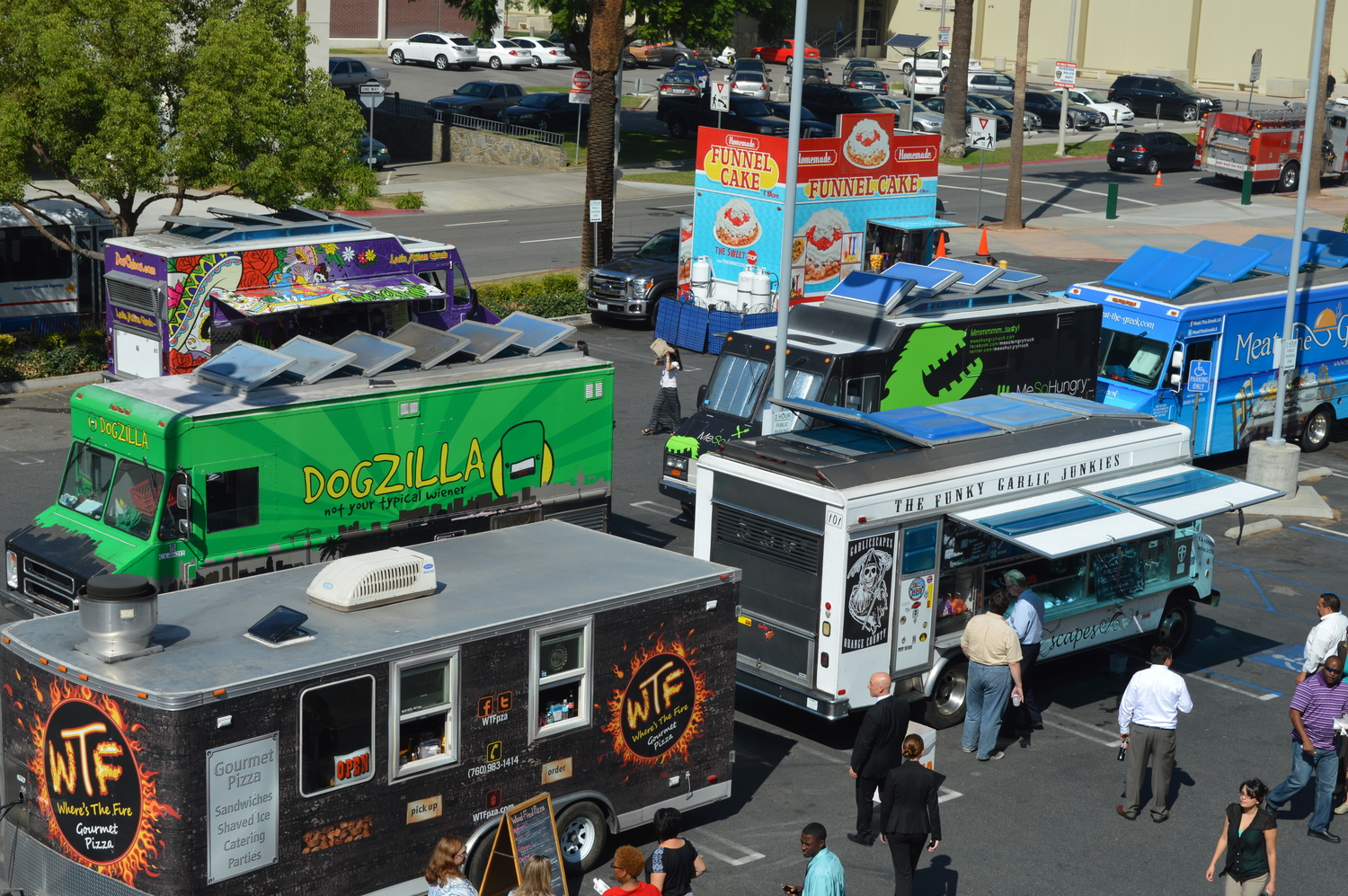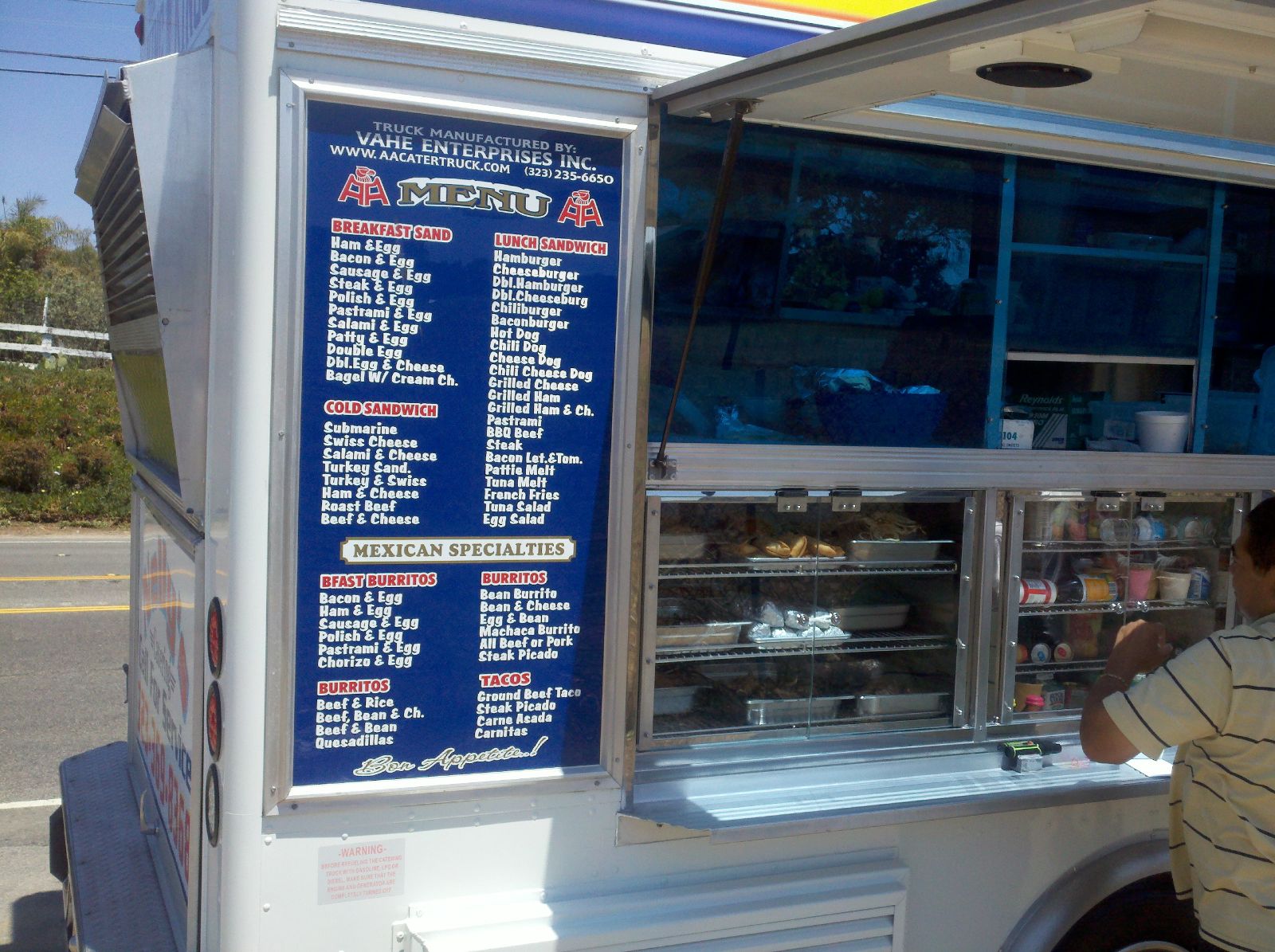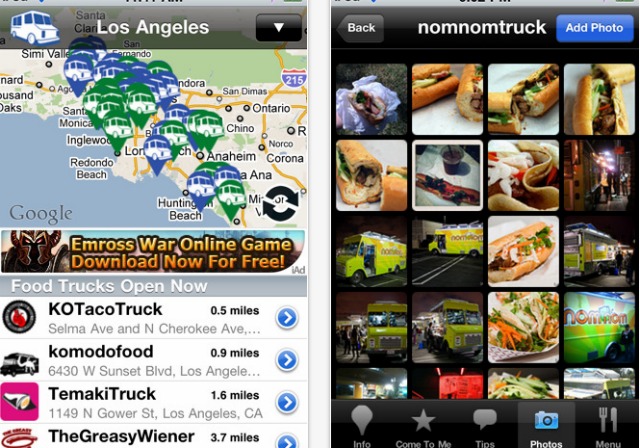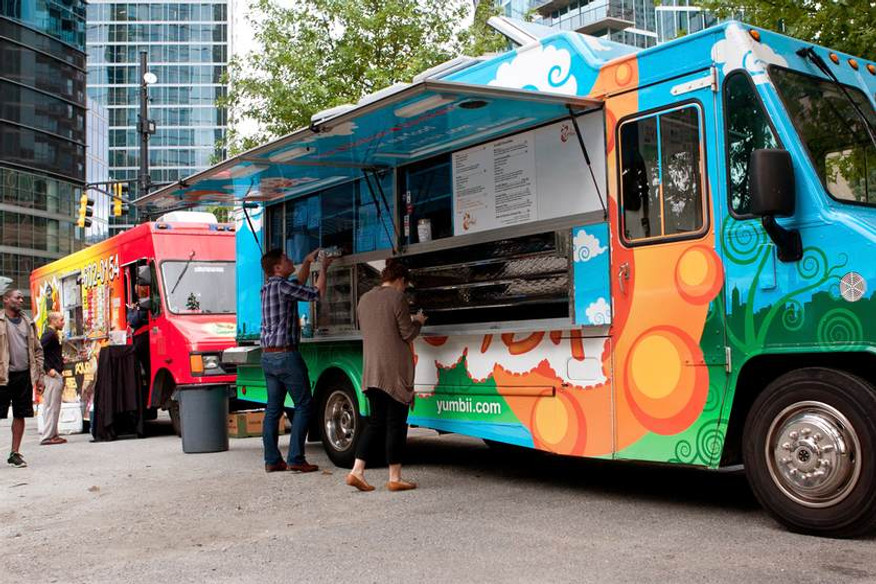Feb 3rd 2017 - J. Vigotsky
Starting a Food Truck Business – What to Know
Starting a food truck business is the perfect plan for chefs who desire a less risky and lower cost alternative to opening a restaurant. Requiring lower overhead, fewer employees, and a less costly up-front investment, food trucks also offer the freedom to travel to different locations and serve food to a wide variety of people. Free marketing through social media platforms is yet another advantage of mobile food trucks. Whether you’re a restaurant owner who’s looking to do something new or a chef who wants to make a name for himself, opening a food truck business might be the right move for you!
Trucks vs. Carts vs. Trailers
Although many use the term ‘food truck’ as a general, all-encompassing term, the truth is there are distinct differences between food trucks, food carts, and food trailers. Food trucks are the largest and most mobile of the three. Single continuous units, food trucks usually range from 14-34 feet and provide plenty of space for your staff to prepare, cook, and serve food. Food carts are the smallest of the three and consequently can limit the amount of food you serve. Easily attached to vehicles for transportation, food carts are simple to clean and cost significantly less than the other two options. Food trailers are like a mix between trucks and carts. Closer in size to food trucks but requiring to be towed like carts, food trailers boast enough interior space for a decent-sized kitchen. Now that we’re clear on the differences between the three units, the rest of this post will focus primarily on food trucks.
Rules Are Rules
Before you invest in a multi-thousand dollar truck, there are a couple of important details that should be considered. First, check the local bylaws of your city, town, or neighborhood to ensure mobile food trucks are legal. Even if they’re legal in your city, places like New York and Los Angeles are notorious for limiting the number of permits they distribute. It can often takes months or even years to procure the proper permits and licenses.
Maybe you scouted out a few locations and found a heavily-trafficked area that would be perfect for your food truck. Unfortunately, many locations restrict food trucks from parking on their premises. So while you might think you’ve found the location of your dreams, it’s in your best interest to ensure food trucks are permitted there.
Finding the Perfect Truck
Since trucks are significant investments, it’s essential that you find the right one before moving forward with your business. There are several factors that must be taken into account when you buy a food truck. Perform a little informal research first by asking other food truck owners what they like and don’t like about their trucks. Some of their answers might resonate and give you a better idea of what kind of truck you’d prefer. It’s also important to be aware of any local or state regulations regarding the design of food trucks. By knowing what type of truck can satisfy these requirements, you will save yourself from dealing with potential future issues. When you find a food truck for sale that fulfills your personal needs as well as the local and state requirements, try to envision yourself in that truck. If you can easily do so, you know you’ve found ‘the one.’

Deciding What Food to Offer
The obvious advice is to offer food you love and know how to cook. But if other local food trucks have already cornered or saturated the market on those specific items, it will be in the best interest of your food truck to offer something else. This idea is particularly applicable to smaller cities and neighborhoods. It’s also important to consider what types of food are popular in your area.
As the cost and availability of food ingredients can vary significantly, these variables should also be assessed when determining what type of food is best suited for your food truck. Last but not least, the cost efficacy of your food should also be taken into account. After all, your food truck is a business that will need to produce a positive bottom line.
Designing a Menu
Designing effective menus is an art-form. Leaving lasting first impressions on your customers, menus should accurately convey the style, attitude, and personality of your food truck. But before focusing a menu’s style, an owner must decide what dishes will be listed and what their prices will be. Researching other local food trucks can help shed some light on each of these dilemmas. Ideally, dishes that are like those of your competition should be priced similarly. This means they should be offered for within $1 more or less than your competition. Once your food options are known, you’ll have the freedom to name dishes something elegantly simple or wildly extravagant. Whatever you choose, make sure it complements the unique personality of your food truck.
Small font and illegible writing can frustrate customers and motivate them to eat elsewhere. To avoid these issues, ensure the words on your menu are large and easy to read. Especially in certain diverse neighborhoods, it’s essential to offer appropriate menus for non-English speakers. Provide food photos that accurately represent what your serve. If you Photoshop an item to look more appealing, your customers will inevitably be disappointed when their food doesn’t match the picture. Make sure to highlight dishes that are specialties or exceptionally popular. More than just informing people of your food options, menus should enhance the visual experience provided by your food truck and encourage customers to refer their friends and family.

Tracking Your Finances
Obtaining a truck is just the first step toward creating a successful food truck business. As the owner, you will also have to account for expenses like fuel, kitchen designs, commercial cooking appliances, food truck equipment, and employees’ salaries. Make sure to lay out a detailed financial plan that addresses these expenses along with anything else you can think of.
Hiring Employees
The most important trait a potential employee can have is a passion for people, food, and the food truck industry. Since you and your staff will be spending long, fast-paced hours together, it’s essential that your employees maintain positive attitudes. This is not only for your benefit, but more importantly for the customers who expect to be a greeted and helped by friendly faces. Cooking experience is also important, but your unique kitchen procedures and recipes will need to be taught regardless of the employee’s expertise. Also make sure you know what hours you will need your staff to work, as this helps you identify which potential employee’s schedule aligns well with yours.
Marketing
Launching a successful marketing campaign is one of the most important factors in generating buzz for your new food truck. Successfully leveraging digital marketing platforms like social media is immensely helpful when it comes to informing the public about your business. Mediums like Twitter, Pinterest, Facebook, and Instagram will help interested customers stay informed about the location of your mobile food truck, and what it’s offering. Even if computers aren’t your thing, it’s easy to delegate this responsibility to a more tech-savvy employee.

Hard Work
There’s no getting around the fact that hard work is an absolute necessity for owners who wish to run a successful food truck business. A lifestyle that encompasses more than just cooking delicious food, owning a food truck requires you to work long days that will test your stamina, patience, and dedication. Customers expect to receive their great-tasting food promptly, even during chaotic meal time rushes. This means you’ll have to cook more quickly and efficiently than ever before. And even if you excel at working long, fast-paced hours, it will ultimately be your skills in business, marketing, time management, and relating to customers that make the difference between a failing and thriving food truck.

